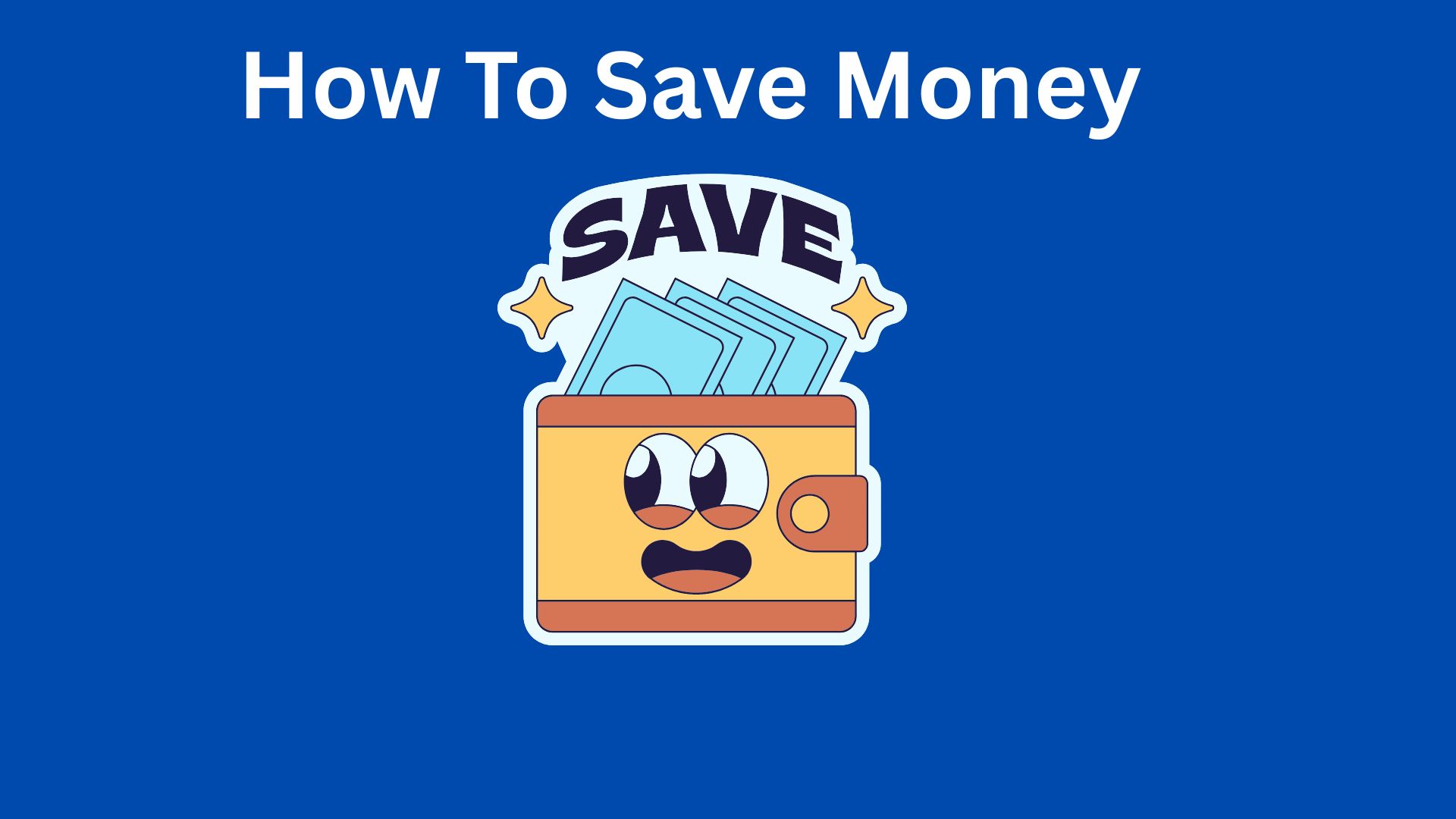If you’re trying to save money but find yourself barely breaking even month after month, you’re not alone. I know the feeling all too well. Early in my freelance career—juggling inconsistent paychecks, surprise expenses, and a strong urge to “treat myself” after a stressful gig—I realized that knowing how to save money isn’t just about cutting back on coffee or skipping a Netflix subscription. It’s about mindset, planning, and making intentional choices daily.
Over the last 10+ years, working as a freelancer and digital entrepreneur, I’ve tested nearly every money-saving tip you can imagine. Some worked, some didn’t—and some, I still use to this day. Whether you’re launching your virtual assistant business or looking for ways to make your online income stretch further, understanding the best ways to save money can mean the difference between financial stress and financial freedom.
The truth is: saving money is possible for anyone—even if you think you can’t save. You just need the right approach.
Key Takeaways
- Saving money isn’t just about spending less—it’s about intentional financial choices that align with your long-term goals.
- Consistency beats intensity: small habits like automating savings and tracking your spending add up fast.
- You don’t need to earn six figures to build a solid emergency fund—you just need a realistic budget and actionable strategies.
- Avoiding common pitfalls like impulse spending, credit card debt, and leaving free money on the table can save you money without big sacrifices.
- From adjusting your cell phone plan to starting a savings account with a better interest rate, there are plenty of practical ways to build savings—without feeling deprived.
A Quick Reality Check: Most People Struggle to Save
According to a 2024 report by the Financial Health Network, over 56% of Americans live paycheck to paycheck, while nearly half of gig workers say they need early access to cash at least once per month. That’s not because they’re lazy or irresponsible—it’s because income volatility, rising costs, and lack of financial literacy create a perfect storm.
But here’s the good news: with the right tools, mindset, and strategies, you can absolutely start saving money, no matter where you are today.
20 Proven Ways to Save Money (Money Saving Tips)
1. Create a Realistic Budget That Works for You
Understand Where Your Money Is Going
Before you can save anything, you need to know where your money is going. Track every purchase for a month—yes, even that coffee every day. Use apps like YNAB or a simple spreadsheet to monitor your monthly expenses and categorize your spending.
Build a Budget You Can Stick To
Once you have clarity, create a budget based on your income, fixed costs, and variable spending. The goal isn’t to cut everything, but to align your spending with your values and savings goals. If you’re just starting your virtual assistant career, consider using the 50/30/20 rule as a foundation—50% for needs, 30% for wants, and 20% for savings and debt repayment.
2. Open a High-Yield Savings Account
Make Your Money Work for You
Don’t let your savings sit in a zero-interest account. A savings account with a high interest rate can help your money grow passively. Look for digital banks or money market accounts that offer competitive returns and no monthly fees.
Set Up Automatic Transfers
Once your account is active, set up automatic transfers from your checking account to your savings account right after every paycheck hits. This removes the temptation to spend what should be saved.
3. Start Building an Emergency Fund
Prepare for the Unexpected
An emergency fund is essential—especially for freelancers or those providing virtual assistant services, where income can fluctuate. Aim to save 3 to 6 months’ worth of monthly bills to cushion against late payments or client loss.
Start Small, Stay Consistent
You don’t need to save it all at once. Putting away money bit by bit—say, 5–10% of each gig’s payout—adds up fast. Even $20 a week can turn into over $1,000 in a year.
4. Reduce Unnecessary Subscriptions and Recurring Charges
Audit Your Spending
Check your bank and credit card statements for hidden recurring charges. Cancel streaming services, gym memberships, or apps you no longer use. You’d be surprised how much you can save money by making this one change.
Evaluate Your Cell Phone Plan
Downgrading or switching your cell phone plan can be a great way to save money each month. Many virtual assistants have found success using affordable data bundles or Wi-Fi calling to cut costs.
5. Use the “Pay Yourself First” Method
Treat Savings Like a Bill
Instead of saving what’s left over, flip the script. Allocate a portion of your income toward savings before spending on anything else. This approach makes saving a priority, not an afterthought.
Automate the Habit
Tools like Chime or Revolut make it easy to automatically direct a balance each month to your savings account, helping you stay disciplined without effort.
6. Cook More Meals at Home
Cut Back on Takeout and Dining Out
Eating out frequently can quietly drain your bank account. By planning your meals and cooking at home, you can spend less, eat healthier, and save hundreds monthly.
Use What You Have
Before you grocery shop, take inventory of your pantry and fridge. Reducing food waste is one of the best ways to save money over time.
7. Embrace the 24-Hour Rule for Purchases
Delay Impulse Buying
Impulse purchases feel good in the moment but often lead to regret—and clutter. Implement a 24-hour rule for non-essential items. You’ll often find the urge to buy fades quickly, saving you both money and mental clutter.
Ask: “Do I Need This or Just Want It?”
This simple question builds your awareness and rewires your money habits toward intentionality.
8. Buy in Bulk (But Only Smartly)
Save More by Spending Smart
Bulk purchases on staples like rice, toilet paper, and cleaning supplies can save you money in the long run. But only buy what you’ll actually use—otherwise, you’re wasting money and space.
9. Refinance or Renegotiate Bills
Lower Your Monthly Payment
If you have a credit card balance or a new car loan, look into refinancing for better interest rates. You can also call service providers to negotiate lower rates on internet, insurance, or utilities.
Bundle Where Possible
Combining home and car insurance can lead to significant savings. Be proactive—it’s often an opportunity to save that people overlook.
10. Take Advantage of Cash-Back Apps and Rewards
Don’t Leave Free Money on the Table
Apps like Rakuten, Honey, or even credit card reward programs can help you earn back a percentage on what you’re already spending. If you’re not using them, you’re literally leaving free money on the table.
Use Responsibly
Only use rewards or cards on purchases you were already planning to make. Never spend extra just to earn points.
11. Sell What You No Longer Use
Turn Clutter Into Cash
Declutter your space and find ways to save by selling unused electronics, furniture, or clothing on platforms like Facebook Marketplace or Pigiame. The extra money you make can go directly into your emergency fund.
12. Avoid Lifestyle Inflation
Just Because You Earn More Doesn’t Mean You Have to Spend More
As your freelance income grows, resist the temptation to upgrade your lifestyle. Instead, start saving money from every income bump to reach your savings goals faster.
13. Practice the “No Spend” Challenge
Reset Your Spending Habits
Try a 7- or 30-day challenge where you spend money only on essentials. You’ll quickly notice where your impulses lie—and how much you could save by limiting them.
14. Use a Separate Account for Savings
Keep It Out of Sight, Out of Mind
Separating your savings from your spending account reduces the temptation to dip into it. Consider a checking account for bills and a dedicated savings account for your goals.
15. Automate Bill Payments to Avoid Late Fees
Save Money Without Effort
Late fees can add up fast. Automate your monthly payments to avoid unnecessary charges. Many companies also offer discounts for autopay enrollment.
16. Learn to DIY Small Fixes
You Don’t Need to Call a Pro for Everything
YouTube is full of tutorials that teach you how to patch holes, fix leaks, or do simple car maintenance—often saving you hundreds per year.
17. Track Every Dollar
Know Where Every Penny Goes
This habit is what separates successful savers from everyone else. Use budgeting apps or spreadsheets to track income and expenses down to the last shilling. When you know how to save, you also know where your money might be leaking.
18. Use Windfalls Wisely
Don’t Blow That Bonus
Whether it’s a tax refund, referral bonus, or surprise freelance payment, plan to set aside money instead of spending it impulsively. These are ideal times to boost your emergency fund or invest.
19. Pick Up a Side Hustle
Find Ways to Earn More
Sometimes the best way to save money is to make more. Explore gigs like transcription, content writing, or affiliate marketing—things I’ve done myself—especially during slow VA months.
20. Set Specific, Visual Savings Goals
Give Your Money a Purpose
It’s easier to save when you know why you’re doing it. Want a new laptop for your VA business? A rainy-day fund? Label your savings accounts and watch your progress grow. You’ll stay motivated—and inspired to find ways to reduce spending elsewhere.
Saving Is Hard—Let’s Be Honest About That
Many personal finance articles oversimplify the concept of saving—telling you to “just cut back” or “stop spending so much.” But let’s be real: it’s difficult to save when you’re facing irregular income, high monthly bills, or living in an economy where costs rise faster than income.
As someone who built a freelance business from scratch in an emerging market, I’ve faced months where saving even $10 felt like a stretch. The key is consistency, not perfection. If you can’t save a lot, save a little—regularly. That’s where the long-term magic happens.
Why Most Budgets Fail (and How to Fix Yours)
The Problem with Overly Restrictive Budgets
One common mistake? Creating a budget so strict it’s impossible to follow. If your spending plan feels like punishment, it’s bound to fail.
Instead, build flexibility into your budget. Leave room for joy—coffee, entertainment, or a small indulgence. When you plan to save while still living your life, your chances of success increase dramatically.
Reallocate Based on Changing Income
As a virtual assistant, your income might fluctuate month to month. That’s normal. Use a rolling budget or a “bucket system” that allocates money into categories like essentials, irregular expenses, and savings. This lets you adapt and still reach your savings goals—even during lean months.
The Psychology of Saving: Why Habits Matter More Than Math
You don’t need to be a financial expert to make saving money a reality. What you need is awareness, intentionality, and a few smart habits. Here’s what works:
- Visual motivation: Label your savings account with names like “VA Laptop Fund” or “Emergency Rent Buffer.” When savings are tied to specific goals, you’re more motivated to protect them.
- Behavioral nudges: Use automation to build good habits. When you set aside money before spending, you’re training your brain to prioritize future-you.
- Track progress: Check your account each month. Seeing your balance grow—even slowly—reinforces discipline.
What If You’ve Tried Everything and Still Can’t Save?
It happens. Maybe your monthly payment obligations are too high, or you’re living in a high-cost city. Maybe your income just isn’t enough yet.
In these cases, finding ways to earn extra money might be your best next move. Consider freelancing platforms, micro-tasks, or passive income options like affiliate marketing or blogging—strategies I’ve personally used over the years.
But even as you earn more, keep one thing in mind: more money doesn’t mean more spending. Too many people fall into the trap of lifestyle inflation. Resist the urge to upgrade everything at once. Instead, start saving money from each paycheck, no matter how small the amount.
Strategic Advice: How to Save Money Without Feeling Deprived
Saving shouldn’t feel like a chore. Here are a few practical ways to save without drastically altering your lifestyle:
- Unsubscribe from temptation: Remove retail emails or shopping apps that encourage impulse buying.
- Use a money market account: With better yields than traditional banks, this is an easy way to grow your funds.
- Round up savings: Use banking tools that round up your purchases and send the difference to your savings account.
- Lower fixed costs first: Focus on reducing large expenses—like housing, insurance, or monthly bills—instead of nickel-and-diming every coffee every day.
Avoid These Common Saving Pitfalls
Even people with the best intentions can fall into traps. Be aware of these:
- Relying solely on credit cards: They may offer rewards, but if you carry a balance, the interest rate wipes out any gains.
- Saving without a goal: Generic saving is better than none, but it lacks purpose. Give your money a job.
- Waiting for the “right” time: There’s no perfect moment. You’re ready to start saving now—even if it’s just $5 a week.
Real Talk: What I Wish I Knew 10 Years Ago
If I could go back in time, I’d tell myself this: “You don’t need to make six figures to save—you just need to make saving a habit.” I used to believe that I needed a “better income” or fewer responsibilities to build savings. That’s not true.
Saving is a skill, not a privilege. The sooner you treat it that way, the more control you’ll have over your financial future. Whether you’re making $200 or $2,000 a month, you can save money faster with intention and discipline.
How Small Changes Add Up Fast
Let’s say you reduce your cell phone plan by $20/month, cook at home instead of eating out (saving around $100/month), and cancel unused subscriptions like streaming services or premium apps (another $40/month). That’s $160/month—or $1,920 a year—in savings that can go straight into your emergency fund or help you invest in your business.
The money you save by making these small tweaks could be your emergency fund, startup capital, or the buffer that allows you to say no to underpaying clients. That’s power.
Final Thoughts: Saving Is Your First Money Superpower
If you’re just getting started as a virtual assistant or building your freelance business, learning how to save money is arguably more important than learning how to earn it. Why? Because it lays the foundation for everything else—financial stability, emergency preparedness, and long-term growth.
You don’t need perfection, and you don’t need a high income. What you need is clarity, consistency, and a plan to save—one that fits your lifestyle and evolves with your income.
Here’s the truth I’ve learned after 10+ years in the online income space: the money you’ll need most isn’t earned—it’s saved. Whether you’re navigating irregular client payments, investing in a new skill, or preparing for slow seasons, your savings can be the bridge between panic and peace of mind.
No matter your starting point, you can learn how to save money, one decision at a time.
Explore More Articles
Frequently Asked Questions (FAQs)
What are the best ways to save money quickly?
Some of the best ways to save money fast include creating a tight budget, cutting recurring subscriptions, cooking at home, downgrading your cell phone plan, and automating transfers into a savings account. Even selling unused items can give you extra money to stash immediately.
How much should I save from each paycheck?
A good rule of thumb is to set aside money equal to 10–20% of your paycheck if possible. Start small if necessary—even saving 5% consistently can build strong financial habits.
What if I can’t save any money?
If you can’t save, start by reviewing your monthly expenses and identifying areas to cut back. Focus on high-impact changes like lowering housing costs or increasing income through ways to earn more (freelancing, side gigs, etc.). Then, begin saving even small amounts—you’ll save more than you think over time.
How can I make saving money easier?
Automate it. Set up automatic transfers from your checking account to your savings account every payday. Also, label your goals and track your progress. Behavioral strategies like the 24-hour rule, visual goal-setting, and digital nudges can all make saving money easier and more sustainable.
Should I focus on saving or paying off debt?
Both are important. Prioritize building an emergency fund to cover 1–3 months of monthly bills first. Then, use strategies like the snowball or avalanche method to tackle debt. Consider balancing savings with debt repayment until you’re financially stable.




